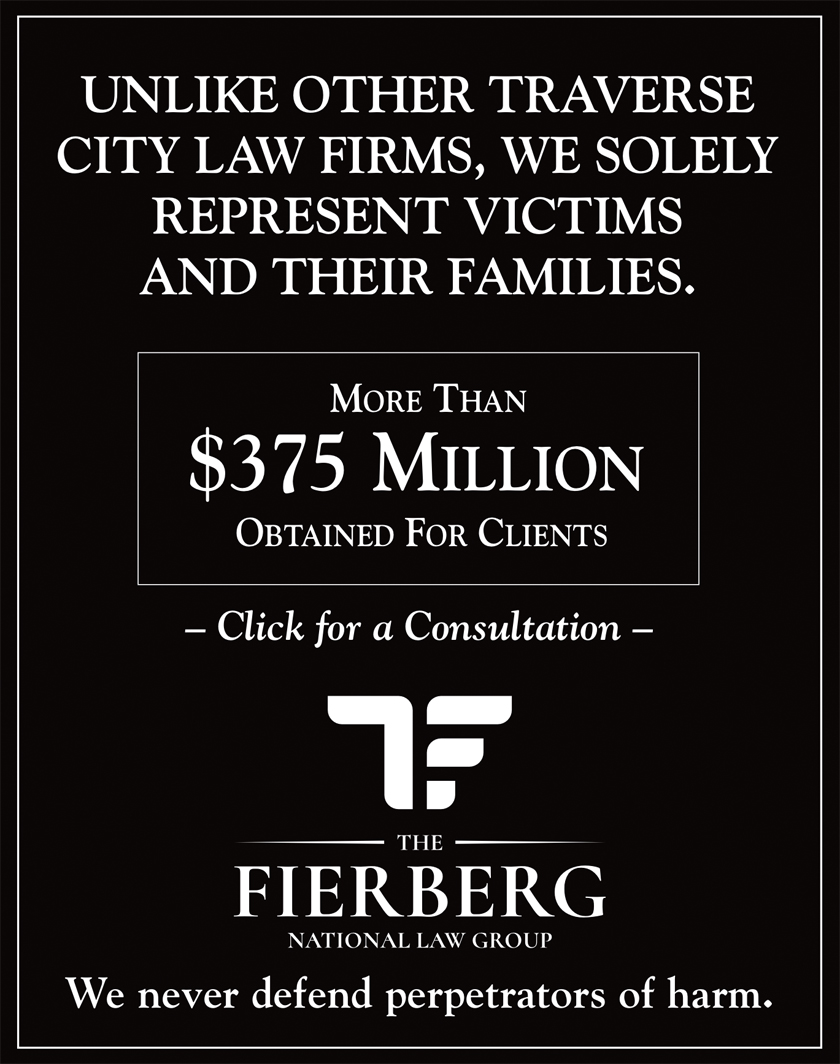
Housing Project, TIF Policy, Two-Way Streets, Sewer Bonds on City Agenda
By Beth Milligan | Feb. 17, 2025
Traverse City commissioners will tackle a packed agenda this week that includes a proposed workforce housing project on Eighth Street, an implementation policy for recent voter-approved charter amendments on tax increment financing (TIF) plans, approval to continue downtown’s two-way street project for two more years, and a notice of intent to issue bonds for city sewer projects. Commissioners will meet Tuesday instead of Monday at 7pm at the Governmental Center due to the Presidents Day holiday.
Housing Project
The Traverse City Housing Commission (TCHC) will present plans Tuesday for a new workforce housing project near the intersection of East Eighth Street and Lake Avenue. As previously reported by The Ticker, TCHC hopes to partner with the city, the Grand Traverse County Land Bank Authority, and S B K Properties LLC – the private property owner of the former Copy Central building – to cobble together several parcels needed for the project, which could bring 40-50 income-restricted apartments to the downtown area.
TCHC is looking to acquire a small (0.05-acre) triangle of property the city owns just west of the Copy Central building. Under the proposed agreement, the city would also relinquish its property interest in a portion of Land Bank Authority land that runs parallel to Lake Avenue from East Eighth Street down past Oryana. That land was once envisioned to be used for a new city road connecting Fourteenth Street to Eighth Street, but those plans were abandoned years ago.
At least five commissioners must agree to authorize city staff to execute the property documents with TCHC and/or the Land Bank Authority. According to TCHC, next steps for the housing project – called “Cityview Apartments” – will include completing environmental due diligence and lining up funding. Possible funding sources include the Michigan State Housing Development Authority (MSHDA), brownfield funds, and a payment-in-lieu-of-taxes (PILOT) agreement with the city, among others. TCHC said it also plans to investigate a new employer-assisted housing program recently announced by Governor Gretchen Whitmer. Prior to construction, possible environmental clean-up and the relocation of power lines – a condition of state funding – will need to occur at the site, TCHC noted.
TIF Policy
City commissioners will consider adopting a new implementation policy for a pair of charter amendments approved by voters in November, which among other conditions require a public vote on creating, modifying, or extending any tax increment financing (TIF) plans in the city. According to a memo from City Attorney Lauren Trible-Laucht, the implementation policy would mirror one adopted when voters previously approved a charter amendment requiring a public vote on buildings over 60 feet tall. The policy would help outline “a process for how TIF-related approvals are to be placed on the ballot,” according to Trible-Laucht, and ensure “that each proposal is handled in the same way regardless of the content of the request. The bottom line is that all such requests should be treated equally.”
The draft policy states that when a requesting entity is seeking TIF plan approval, it will submit that to the city clerk in writing, at which time commissioners will take any action necessary to submit the proposal to voters at the next regular or special election. An applicant won’t be charged anything for putting forth a ballot proposal during a regular election but must pay the extra costs incurred by the city if the applicant wants to call a special election, according to the draft.
The policy standardizes the ballot language that will be used for TIF proposals and states that a ballot proposal approved by voters must go to city commissioners for consideration within 60 days of the certified election results. If a TIF ballot proposal is rejected at the polls, the proposal can be put forward again at the applicant’s request at the next available election. There is no limit to the number of times an applicant can put a proposal forward. The policy doesn’t impact TIF plans that are already in place, though the charter amendment would be triggered if those plans were to be amended or extended.
Commissioners first received the policy draft at the end of January to allow for “plenty of time for review,” Trible-Laucht said. Commissioners tonight could choose to adopt the implementation policy as presented, approve it with changes, or refer it to a study session for additional discussion.
Two-Way Streets
After discussion at previous meetings, city commissioners will vote tonight to approve extending a pilot project converting State Street, Pine Street, and Boardman Avenue to two-way traffic by two more years. TC Downtown Development Authority (DDA) board members voted last fall to recommend approval of the extension to the city commission.
Experimenting with signal modifications at key intersections, mid-block crosswalks, and different alley or delivery configurations – as well as other adjustments like potentially making Front Street two-way temporarily – could produce more data and better determine whether the pilot is effective, DDA staff and consultants previously said. However, based on initial commission feedback, DDA CEO Harry Burkholder emphasized that no physical modifications will be made to Front Street as part of the proposed pilot extension. Any temporary shift to two-way traffic on Front Street to test out that configuration would have to first be approved by the DDA and city commission under a separate traffic control order, Burkholder noted.
Sewer Bonds
Finally, commissioners Tuesday will consider adopting a notice of intent resolution that would allow the city to issue up to $42 million in sewer system revenue bonds for upcoming sewer projects. Commissioners previously approved issuing up to $30 million in bonds, but higher-than-expected construction costs plus engineering and contingency fees now put the total estimated price tag at over $41 million. The resolution gives the city the ability to bond up to $42 million but doesn’t obligate it to do so if final costs come in under budget, noted City Director of Municipal Utilities Art Krueger.
The project will cover major improvements to the wastewater treatment plant headworks and UV systems. The sewer system bonds will be repaid over time through user fees. Following commission approval of the notice of intent resolution, a public notice will be published that gives voters a 45-day period in which they can file referendum petitions calling for an election before the bonds can be issued. If the referendum period passes with no petitions filed, city commissioners will be asked – likely in July – to adopt an ordinance authorizing the actual issuance of the bonds, according to City Manager Liz Vogel.
Comment






